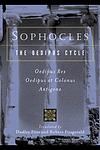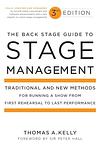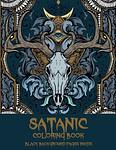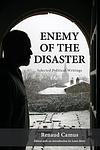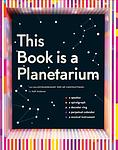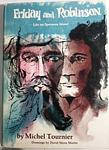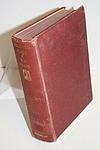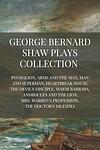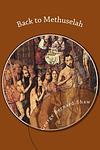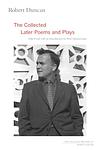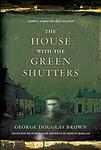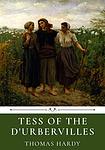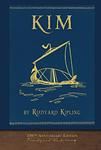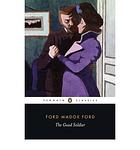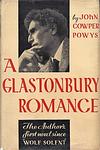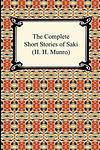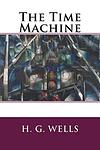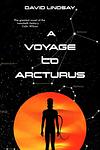Harold Bloom's The Western Canon
This is one of the 305 lists we use to generate our main The Greatest Books list.
-
The Woman Of The Pharisees by François Mauriac
The novel is a penetrating character study set in early 20th-century France, told through the eyes of a young man reflecting on his past. It centers around a devoutly Catholic woman, whose outward piety and strict adherence to religious principles mask a deep-seated pride and a penchant for manipulation. As the narrator recounts his experiences with this woman, who is closely associated with his family, the narrative explores themes of hypocrisy, morality, and the complex interplay between religion and human nature. The woman's influence on those around her leads to various personal tragedies, revealing the dangers of self-righteousness and the often harsh judgment she imposes on others in the name of virtue.
The 7168th Greatest Book of All Time -
Becket by Jean Anouilh
The play revolves around the transformation of its main character, a man of Saxon origin who rises to become the Chancellor of England and a close friend to the King. However, when he is appointed Archbishop of Canterbury, he undergoes a profound change, embracing his role with a newfound religious zeal that puts him at odds with the King's authority. The play explores themes of friendship, loyalty, and the conflict between church and state, culminating in a dramatic clash that leads to the main character's martyrdom. His journey from a pleasure-loving courtier to a principled man of faith challenges both his own identity and the power structures of his time.
The 7168th Greatest Book of All Time -
Antigone by Jean Anouilh
The play is a modern adaptation of the classic Greek tragedy, which follows the story of Antigone, the daughter of Oedipus, as she defies the laws of the state to bury her brother Polynices, who has been declared a traitor and whose body has been condemned to remain unburied. Antigone's actions set her at odds with Creon, the ruler of Thebes, leading to a profound exploration of the conflict between individual conscience and state law, the role of fate, and the nature of morality. As Antigone's resolve leads her to tragic consequences, the play delves into themes of loyalty, honor, and the human cost of absolute power.
The 3026th Greatest Book of All Time -
Eurydice by Jean Anouilh
The play reimagines the classic myth of Orpheus through the perspective of his wife, Eurydice, a young actress who dies tragically in a car accident. In the afterlife, she is reunited with her father, and they share a bittersweet existence in the underworld. Orpheus, unable to accept her death, descends to bring her back to life, but with the condition that he must not look at her until they reach the upper world. The play explores themes of love, loss, and the choice between a perfect memory and imperfect reality, ultimately questioning whether true happiness can be found in the refusal to accept the impermanence of life.
The 7168th Greatest Book of All Time -
The Rehearsal by Jean Anouilh
"The Rehearl" is a play that delves into the complex interplay between reality and performance, set against the backdrop of a 17th-century French court. The narrative revolves around a group of actors who are rehearsing a play about the love affair between the Count and the Countess. As the actors immerse themselves in their roles, the boundaries between their real lives and the characters they portray begin to blur. The Countess's own brother, who is directing the play, manipulates the situation, leading to a dramatic intertwining of life and art that questions the nature of truth and illusion. The play explores themes of love, power, and the artifice inherent in both theater and life itself.
The 7168th Greatest Book of All Time -
The Bald Soprano by Eugène Ionesco
"The Bald Soprano" is a play that explores the absurdity of everyday life through a nonsensical narrative. It revolves around two middle-class English couples, the Smiths and the Martins, who engage in meaningless and repetitive conversations. The play is known for its unconventional structure, lack of plot, and the characters' surreal behavior, which are all used to satirize the banality and futility of routine and social norms. The title refers to a character who is never seen or mentioned again after the opening scene.
The 1558th Greatest Book of All Time -
The Chairs by Eugène Ionesco
"The Chairs" is a tragic farce that delves into the themes of existentialism and the absurdity of human existence. The play unfolds as an elderly couple prepares a room full of chairs for a gathering of invisible guests. They are eagerly anticipating the arrival of an orator who will deliver a message of great importance, believed to be the culmination of their life's work. As the room fills with more and more chairs for guests that never appear, the play reaches a climax with the orator's arrival, only to reveal the futility of their expectations and the inherent emptiness of communication. The couple's desperate need for validation and their ultimate failure to convey meaning reflect the human condition's search for purpose in a senseless world.
The 6978th Greatest Book of All Time -
The Lesson by Eugène Ionesco
"The Lesson" is a darkly comedic one-act play that explores themes of power, absurdity, and education. It revolves around a Professor who tutors a young, enthusiastic Pupil in preparation for a totalizing examination. As the lesson progresses, the initially benign academic session descends into a surreal and oppressive ordeal. The Professor's pedantic instruction becomes increasingly authoritarian and nonsensical, leading to a climax that exposes the dangers of indoctrination and the grotesque potential of authority figures to abuse their power. The play is a poignant critique of totalitarian systems and the absurdities inherent in dogmatic approaches to knowledge and learning.
The 7168th Greatest Book of All Time -
Amédée by Eugène Ionesco
The play revolves around the bizarre situation of a couple living with the growing corpse of the husband's friend, Amédée, in their apartment. As the body inexplicably continues to expand, it causes increasing inconvenience and absurdity in their lives. The husband, a failed playwright, and his wife struggle with their mundane existence, their inability to dispose of the corpse, and the surreal events that unfold. The narrative explores themes of stagnation, guilt, and the absurdity of life, as the couple's surreal predicament serves as a metaphor for the inescapable, often grotesque, complexities of the human condition.
The 7168th Greatest Book of All Time -
Victims Of Duty by Eugène Ionesco
"Victims of Duty" is a play that delves into the absurdity of the human condition through a surreal and satirical narrative. The story revolves around a couple whose quiet evening is interrupted by the arrival of a detective, who is on a quest to find the protagonist's predecessor in their apartment. As the detective pressures the protagonist to recall past events, the play descends into a chaotic and nonsensical investigation, blending reality with illusion. The work critiques societal obligations and the search for meaning, ultimately questioning the nature of truth and the role of individuals within the constructs of duty and authority.
The 7168th Greatest Book of All Time -
Rhinoceros and Other Plays by Eugène Ionesco
"Rhinoceros and Other Plays" is a collection of three absurdist dramas that explore themes of conformity, culture, and mass movements. The titular play depicts a small French town where the inhabitants inexplicably transform into rhinoceroses, symbolizing the rise of fascism and the dangers of conformity. The other two plays, "The Leader" and "The Future is in Eggs," continue to explore these themes through a satirical and often surreal lens, challenging societal norms and the nature of reality itself.
The 1728th Greatest Book of All Time -
Thomas The Obscure by Maurice Blanchot
The novel delves into the abstract and often disorienting experiences of its eponymous protagonist, Thomas, as he embarks on a quest for understanding and meaning within a world that seems to resist coherence. Through a series of introspective and philosophical encounters, Thomas grapples with the nature of existence, the limits of language, and the elusiveness of truth. The narrative, characterized by dense and challenging prose, reflects the protagonist's internal struggle and the pervasive sense of obscurity that defines his reality, ultimately inviting the reader to confront the profound complexities of consciousness and the ineffable aspects of human experience.
The 7168th Greatest Book of All Time -
The Laws Of Hospitality by Pierre Klossowski
"The Laws of Hospitality" is a philosophical exploration of the intricate and often transgressive dimensions of desire, hospitality, and the taboo. The book delves into the complex relationships between hosts and guests, examining the unwritten rules and ethical dilemmas that govern their interactions. Through a series of provocative scenarios and reflections, the text challenges conventional moral boundaries and societal norms, inviting readers to consider the underlying power dynamics and the role of the erotic in the seemingly benign act of welcoming another into one's private space. The work intertwines narrative elements with theoretical insights, creating a tapestry that questions the very foundations of human relationships and the laws that seek to regulate them.
The 7168th Greatest Book of All Time -
The Baphomet by Pierre Klossowski
"The Baphomet" is a philosophical novel that delves into the esoteric and mystical aspects of the Knights Templar, exploring themes of transgression, heresy, and the nature of divine presence. The narrative is structured around a series of ritualistic encounters and dialogues among the Templars, who have achieved a form of immortality. The characters engage in complex discussions on the dissolution of individual identity, the fluidity of gender, and the quest for spiritual transcendence. The book blends historical elements with surreal and symbolic imagery, challenging the reader to consider the boundaries of desire, knowledge, and the sacred.
The 7168th Greatest Book of All Time -
Locus Solus by Raymond Roussel
"Locus Solus" is an avant-garde novel that revolves around the eccentric millionaire inventor, Canterel, who invites a group of guests to visit his estate, Locus Solus. Here, he displays a series of bizarre inventions, each with a detailed backstory. The inventions include a diamond-encrusted machine that constructs intricate mosaics using human teeth, a large glass cage filled with preserved human heads that reenact key moments from their lives, and a device that uses preserved body parts to perform a grotesque ballet. The narrative is heavily detailed and surreal, creating a unique and intriguing exploration of art, life, and the human condition.
The 1409th Greatest Book of All Time -
Selected Writings by Antonin Artaud
"Selected Writings" is a compilation of texts from a seminal figure in the avant-garde theater and literary world, known for his radical ideas on the performance arts and the role of the artist in society. This collection showcases the author's diverse literary output, including manifestos, plays, letters, and essays that delve into his Theatre of Cruelty concept, which sought to disrupt the complacency of the audience and challenge the boundaries of conventional theatre. The writings reflect his tumultuous life, marked by mental illness and profound philosophical inquiry, and his influential thoughts on the interplay between reality and illusion, the body and the psyche, and the potential of art to reveal the deepest truths of the human condition.
The 7168th Greatest Book of All Time -
Tristes Tropiques by Claude Lévi-Strauss
"Tristes Tropiques" is a blend of autobiography, travel literature, and anthropology by a renowned scholar. The book is a recounting of the author's travels and anthropological work, primarily in Brazil, in the 1930s. It provides a critical and philosophical reflection on his experiences and observations, offering insights into indigenous tribes like the Nambikwara and Tupi-Kawahib, and exploring themes of cultural change, the nature of anthropology, and the author's own disillusionment with Western civilization.
The 824th Greatest Book of All Time -
The Voyeur by Alain Robbe-Grillet
"The Voyeur" is a psychological thriller that revolves around the protagonist, a watch salesman, who visits an island town to sell watches but becomes the prime suspect in a young girl's murder. The narrative delves into the mind of the salesman, constantly blurring the lines between reality and his fantasies. The book is known for its experimental narrative style, with the author often repeating scenes with minor variations and leaving the reader to question the truth.
The 4137th Greatest Book of All Time -
Jealousy: A Novel by Alain Robbe-Grillet
This novel is an avant-garde narrative that explores the concept of jealousy through a highly detailed and descriptive narrative. The story unfolds in a tropical banana plantation and is told from the perspective of an unnamed narrator who may or may not be present in the scenes described. The narrative is characterized by repetition and minute observation of details, creating a sense of obsessive jealousy. The story is ambiguous and leaves the reader questioning the reality of the events and the existence of the narrator.
The 920th Greatest Book of All Time -
In The Labyrinth by Alain Robbe-Grillet
"In the Labyrinth" is a postmodern novel that delves into the fragmented and unreliable nature of memory and perception. The narrative follows a soldier as he wanders through a maze-like city, attempting to deliver a package whose contents and recipient are unknown. The story is characterized by its repetitive and non-linear structure, creating a disorienting and introspective experience for the reader. As the protagonist's journey unfolds, the lines between reality and imagination blur, challenging the reader to question the very nature of storytelling and the construction of meaning within a text.
The 7168th Greatest Book of All Time -
The Erasers by Alain Robbe-Grillet
The book is a complex and innovative narrative that blurs the lines between reality and imagination, following a detective who is investigating a series of connected murders in a nameless town. As the detective delves deeper into the case, the story unfolds in a non-linear fashion, challenging the reader's perception of time and causality. The novel's structure, characterized by repetitive descriptions and a lack of clear resolution, reflects the themes of uncertainty and the elusiveness of truth, ultimately questioning the nature of existence and the reliability of memory and perception.
The 1819th Greatest Book of All Time -
Project For A Revolution In New York by Alain Robbe-Grillet
The book in question is a complex and fragmented narrative that delves into the chaotic and surreal environment of a post-revolutionary New York City. Through a series of disjointed scenes and characters, the novel explores themes of violence, sexuality, and political upheaval. The narrative structure defies conventional storytelling, with an elusive plot that challenges the reader's perception of reality. The work is emblematic of the author's involvement with the Nouveau Roman movement, which sought to revolutionize literary form and content by breaking away from traditional narrative techniques.
The 7168th Greatest Book of All Time -
For a New Novel by Alain Robbe-Grillet
"For a New Novel" is a collection of essays by a prominent French writer and filmmaker, where he challenges the traditional norms of narrative and character development in novels. The author argues for a new form of novel, one that focuses more on the objectivity of description and the presentation of things as they are, rather than on the psychological analysis of characters. He criticizes the conventional novel for its reliance on plot, causality, and character development, and instead proposes a novel that is more concerned with the surface of things, their materiality and their presence in space and time.
The 2018th Greatest Book of All Time -
The Use Of Speech by Nathalie Sarraute
"The Use of Speech" is an avant-garde exploration of the subtleties and complexities of human communication, delving into the nuances of spoken interaction. Through a series of vignettes, the narrative dissects the layers of meaning, intention, and emotion that underlie everyday conversations. The book challenges traditional narrative structure and character development, focusing instead on the intricate dance of dialogue and the unspoken undercurrents that shape our social exchanges. With a keen psychological insight, it reveals the depth and ambiguity of language, exposing the ways in which words can both connect and alienate individuals in their quest for understanding and expression.
The 7168th Greatest Book of All Time -
The Planetarium by Nathalie Sarraute
In "The Planetarium," the narrative delves into the complex web of human relationships and the subtle power dynamics within a Parisian family. The story unfolds through a series of internal monologues and fragmented conversations, focusing on a young writer who seeks recognition and support from his self-absorbed aunt. The aunt, preoccupied with her own social status and the maintenance of her bourgeois lifestyle, becomes the center of a psychological exploration of pretense, manipulation, and the struggle for authenticity in a world governed by social appearances. The novel dissects the intricacies of familial expectations and the individual's quest for identity amidst the pressures of societal conformity.
The 3023rd Greatest Book of All Time -
The Grass by Claude Simon
"The Grass" is a novel that delves into the fragmented memories of its protagonist, exploring themes of time, memory, and the nature of narrative itself. Through a stream-of-consciousness style, the book weaves together various episodes from the character's life, including experiences of war, love, and loss. The narrative structure defies traditional linear storytelling, instead presenting a mosaic of images and reflections that challenge the reader to piece together the story. The novel's intricate prose and complex structure reflect the author's commitment to the nouveau roman literary movement, which emphasizes the creation of new forms and structures in literature.
The 7168th Greatest Book of All Time -
The Wind by Claude Simon
"The Wind" is a novel that delves into the fragmented memories of a soldier during the Spanish Civil War, exploring the themes of time, memory, and the chaos of war. The narrative is characterized by its stream-of-consciousness style, with the protagonist's recollections flowing in a disjointed manner, reflecting the disorientation and trauma of battle. The novel's structure mirrors the tumultuous nature of the wind itself, shifting and turning through the past and present, as the soldier grapples with the fragmented pieces of his experiences, trying to make sense of the violence and upheaval that has upended his life.
The 7168th Greatest Book of All Time -
The Flanders Road by Claude Simon
The novel delves into the complexities of memory and the chaos of war, weaving together the narratives of several characters whose lives are entangled by the events of World War II. Set against the backdrop of the German invasion of France, the story unfolds through a series of flashbacks and stream-of-consciousness reflections, primarily focusing on a French cavalry officer captured by the Germans. As the characters grapple with their experiences and relationships, the book explores themes of loss, betrayal, and the elusive nature of truth, all while challenging traditional narrative structures with its fragmented and non-linear approach to storytelling.
The 1446th Greatest Book of All Time -
The Lover by Marguerite Duras
"The Lover" is a poignant exploration of forbidden love, power dynamics, and colonialism. Set in 1930s French Indochina, it tells the story of a tumultuous and passionate affair between a 15-year-old French girl and her wealthy, older Chinese lover. The narrative delves into the complexities of their relationship, the societal norms they defy, and the inevitable heartbreak that follows. The protagonist's struggle with her family's poverty and her mother's mental instability further complicates the story, making it a compelling exploration of love, desire, and societal constraints.
The 299th Greatest Book of All Time -
Four Novels by Marguerite Duras
The book is a collection of four distinct yet thematically interconnected novels that delve into the complexities of human relationships, memory, and desire. Set against the backdrop of French colonialism in Southeast Asia and post-war France, the narratives explore the lives of individuals as they navigate love, loss, and the search for identity. The author's minimalist prose and fragmented storytelling technique reflect the inner turmoil of the characters, often blurring the lines between reality and imagination. Through these intimate portraits, the collection examines the intricate dance between the personal and the political, and the enduring impact of the past on the present.
The 8393rd Greatest Book of All Time -
Fable by Robert Pinget
"Fable" is a complex and experimental novel that delves into the fragmented recollections of an unnamed narrator, who attempts to piece together the story of a missing person in a small, rural village. The narrative is characterized by its disjointed structure, shifting perspectives, and the unreliability of memory and language. As the narrator converses with various villagers, the text becomes a meditation on the act of storytelling itself, challenging the reader to discern truth within the layers of hearsay and contradiction that build the elusive tale of the absent character. The novel's dense and poetic prose invites multiple interpretations, making it a challenging yet rewarding read for those who appreciate literary puzzles and the deconstruction of traditional narrative forms.
The 7168th Greatest Book of All Time -
The Libera Me Domine by Robert Pinget
"The Libera Me Domine" is a contemplative novel that delves into the intricacies of memory and the nature of storytelling. Through a series of fragmented narratives and conversations, the book explores the life of a deceased character, as recounted by various inhabitants of a small village. The narrative is characterized by its experimental structure, shifting perspectives, and the unreliability of its narrators, which challenges readers to piece together the truth from the mosaic of recollections and anecdotes. The novel's title, a reference to a Latin prayer for deliverance, echoes its themes of seeking understanding and liberation from the confines of the past and the complexities of human recollection.
The 7168th Greatest Book of All Time -
That Voice by Robert Pinget
The book in question is a complex exploration of memory and identity, told through the fragmented recollections of an unnamed narrator. As the protagonist attempts to piece together the story of a missing person, the narrative delves into a series of anecdotes, conversations, and musings that challenge the boundaries of reality and fiction. The text is characterized by its experimental style, with a stream-of-consciousness approach that blurs the lines between the narrator's inner thoughts and the external world, creating a disorienting yet thought-provoking experience for the reader.
The 7168th Greatest Book of All Time -
The Ogre by Michel Tournier
"The Ogre" is a complex narrative that explores the life of a Frenchman who, through a series of misadventures and peculiar circumstances, finds himself in Nazi Germany during World War II. Initially working as a caretaker at a hunting lodge, he becomes entangled with the German regime and is assigned to recruit children for an elite Nazi school. The protagonist's obsession with purity and innocence, coupled with his imposing physical presence, paints a dark and unsettling portrait of a man who, while seeking to preserve the essence of childhood, becomes an unwitting participant in the horrors of the era. The novel delves into themes of myth, innocence, and the corrupting influence of ideology, all while examining the nature of good and evil within the human soul.
The 7168th Greatest Book of All Time -
Friday by Michel Tournier
The novel tells the story of Robinson, a European man who becomes the sole survivor of a shipwreck on a remote tropical island. He attempts to create a civilization in his image, but his efforts are largely unsuccessful. When a native named Friday eventually arrives on the island, Robinson attempts to teach him his ways. However, Friday, who is free-spirited and in tune with nature, fundamentally challenges Robinson's worldview. The novel explores themes of colonialism, the nature of civilization, and the tension between individual freedom and societal order.
The 2361st Greatest Book of All Time -
Coup De Grace by Marguerite Yourcenar
Set against the backdrop of the Russian Civil War, the novel explores the complex relationships and moral dilemmas of a group of aristocratic officers fighting for the White Army. The protagonist, an emotionally detached soldier, finds himself entangled in a tragic love triangle with a fellow officer and a young Baltic woman who sympathizes with the Bolsheviks. As the war rages on, the protagonist must confront his own feelings of passion, loyalty, and the brutal realities of a conflict that challenges the very essence of honor and humanity. The narrative culminates in a poignant act that serves as both a personal and political statement, reflecting the disillusionment and devastation of a world in upheaval.
The 7168th Greatest Book of All Time -
Memoirs of Hadrian by Marguerite Yourcenar
"Memoirs of Hadrian" is a historical novel that presents a fictional autobiography of the Roman Emperor Hadrian, who reigned from 117 to 138 AD. Narrated in the first person, the novel explores Hadrian's ascension to the throne, his administration, his love for the young Antinous, and his philosophical reflections on life and death. The narrative is framed as a letter to his successor, Marcus Aurelius, offering insights into the complexities of power, the nature of leadership, and the human condition.
The 310th Greatest Book of All Time -
Transparence Of The World by Jean Follain
"Transparence of the World" is a collection of poetry that delves into the essence of everyday life, capturing fleeting moments and mundane objects with profound simplicity and beauty. The poet reflects on the passage of time and the transitory nature of existence, weaving together images of the past with the present. Through concise and evocative language, the poems illuminate the ordinary, revealing a world that is rich with meaning and suffused with an almost ethereal clarity, inviting readers to pause and consider the depth of the seemingly commonplace.
The 7168th Greatest Book of All Time -
Words In Stone by Yves Bonnefoy
"Words in Stone" is a contemplative exploration of the intersection between poetry, art, and philosophy. The work delves into the essence of language and its ability to capture the transient nature of human experience. Through a series of essays, the author reflects on the limitations and possibilities of words, drawing upon a rich tapestry of literary and artistic references. The book invites readers to consider the profound relationship between the materiality of the written word and the fleeting moments it seeks to immortalize, ultimately offering a meditation on the role of the poet in the ceaseless quest to bridge the gap between the concrete and the ineffable.
The 7168th Greatest Book of All Time -
Collected Poems of W. B. Yeats by William Butler Yeats
This book is a comprehensive collection of poems by a renowned Irish poet. The collection spans his entire career, showcasing his evolution as a poet, from romantic and aesthetic works to more complex, mature pieces reflecting his interest in spirituality and Irish mythology. The book includes his most famous works, as well as lesser-known pieces, providing a thorough overview of his contribution to 20th century literature.
The 217th Greatest Book of All Time -
The Collected Plays of W.B. Yeats by William Butler Yeats
This book is a comprehensive collection of plays by a renowned Irish poet and playwright. The works encompass a wide range of themes and styles, from the mythological and the symbolic to the realistic and contemporary. The plays are known for their lyrical language, complex characters, and exploration of Irish identity and mythology. They offer a profound and nuanced understanding of human nature, society, and the spiritual world.
The 2636th Greatest Book of All Time -
A Vision by William Butler Yeats
The book in question is an esoteric exploration of the cyclical nature of history, art, and the human experience, as seen through the lens of the author's unique system of symbolism and mysticism. Drawing upon a wide array of influences, including the occult, astrology, and the author's own imaginative faculties, it presents a complex framework for understanding the interplay of personal and universal forces. The work is divided into sections that delve into philosophical and poetic discussions, offering a vision of reality that is structured around the phases of the moon and characterized by a series of gyres or spirals, representing the evolution and involution of the soul, history, and civilization.
The 7168th Greatest Book of All Time -
Mythologies by William Butler Yeats
"Mythologies" is a collection of essays and stories that delve into the rich tapestry of Irish folklore, mythology, and the occult. The work explores the intersection of the author's fascination with the supernatural and the cultural heritage of Ireland, examining themes of national identity, the power of myth, and the spiritual dimensions of the human experience. Through a blend of scholarly analysis and imaginative narrative, the book seeks to uncover the deeper meanings behind Irish legends and the enduring influence of these ancient tales on contemporary thought and literature. The author's lyrical prose and insightful commentary offer readers a window into the mystical world of Celtic tradition and its enduring legacy.
The 7168th Greatest Book of All Time -
Major Critical Essays by George Bernard Shaw
This collection of essays showcases the author's incisive wit and profound critical thinking as he delves into a variety of subjects, ranging from the intricacies of Shakespearean drama to the social responsibilities of the artist. The author's articulate and often controversial opinions challenge the status quo and provoke readers to reconsider their preconceptions about literature, theater, and society. His essays are celebrated for their intellectual rigor, humor, and the author's unwavering commitment to social reform, making them an enduring contribution to literary criticism and cultural discourse.
The 7168th Greatest Book of All Time -
Heartbreak House by George Bernard Shaw
Set against the backdrop of pre-World War I Britain, the play unfolds in the eccentric household of Captain Shotover, an old sea captain turned inventor. The narrative explores the lives and loves of the inhabitants of the so-called "Heartbreak House," who represent a microcosm of British society at the time. As they engage in witty banter and romantic entanglements, the characters remain blissfully unaware of the looming external threats that will soon engulf Europe. The play serves as a social critique, highlighting the idle, ineffective intellectualism and lack of moral direction among the British cultural elite, which Shaw saw as contributing to the country's decline and the catastrophic war on the horizon.
The 6974th Greatest Book of All Time -
Pygmalion by George Bernard Shaw
"Pygmalion" is a play that explores the transformative power of education and the nature of language and communication. It follows the story of a cockney flower girl named Eliza Doolittle who is taught to speak and behave like a duchess by a pompous phonetics professor, Henry Higgins. Throughout the process, Eliza develops self-respect and personal dignity, challenging the Victorian society's rigid class system. The play also questions the idea of 'making' someone and the moral responsibility that comes with it.
The 876th Greatest Book of All Time -
Saint Joan by George Bernard Shaw
This play is a dramatic depiction of the life and trial of Joan of Arc. The narrative follows the young, illiterate peasant girl who claims to hear voices from saints, guiding her to lead France to victory against England in the Hundred Years' War. Her success on the battlefield eventually leads to her capture and trial for heresy. The play explores themes of individualism, faith, and the corruption of institutions.
The 2233rd Greatest Book of All Time -
Major Barbara by George Bernard Shaw
The play explores the complex dynamics of social responsibility, morality, and religion through the lens of an idealistic young woman who works at the Salvation Army to help the poor, and her father, a wealthy munitions manufacturer. The conflict between their worldviews comes to a head as they debate the ethics of wealth and charity, with the father arguing that his business, which provides employment and security, is a greater force for good than charity work that merely alleviates the symptoms of poverty. The daughter's struggle with reconciling her moral convictions with the practicalities of the world leads to a profound examination of the true meaning of goodness and the source of societal change.
The 5873rd Greatest Book of All Time -
Back To Methuselah by George Bernard Shaw
"Back to Methuselah" is a collection of five plays that span from the Garden of Eden to the distant future, exploring themes of longevity, evolution, and human development. The work presents a philosophical examination of the human condition, with characters that live for centuries, allowing the author to critique the social and political norms of different eras. The central idea is that humans must willfully evolve to achieve longer lifespans, greater wisdom, and a more profound understanding of their potential. Through a blend of comedy, drama, and speculative thought, the plays challenge readers to consider the possibilities of human progress and the necessity of embracing change for survival.
The 7168th Greatest Book of All Time -
Collected Plays by John Millington Synge
The book is a compilation of dramatic works by a prominent Irish playwright, known for his significant contribution to the Irish Literary Revival. It encompasses a range of plays that vividly capture Irish rural life, often characterized by their use of the Hiberno-English dialect, lyrical prose, and a blend of realism and symbolism. The plays within this collection explore themes of love, tradition, and the struggles of the Irish peasantry, while also delving into the complex interplay between the individual and the community. The playwright's most famous work, included in this collection, is renowned for its controversial reception at the time, which sparked debates about national identity and the role of the arts in society.
The 7168th Greatest Book of All Time -
Juno And The Paycock by Sean O'Casey
The play is a tragicomedy set in the slums of Dublin during the Irish Civil War, focusing on the Boyle family. The father, known as "Captain" Jack Boyle, is a loquacious, self-deluded man who spends his time drinking and avoiding work, while his long-suffering wife, Juno, tries to maintain the household. Their lives are upended when they receive news of an unexpected inheritance, leading to false hopes and reckless spending. As the family's fortunes rise and fall amidst a backdrop of political turmoil and personal betrayals, the play explores themes of poverty, pride, and the illusion of escape from the hardships of working-class life.
The 6975th Greatest Book of All Time -
The Plough And The Stars by Sean O'Casey
Set against the backdrop of the 1916 Easter Rising in Dublin, the play explores the impact of political upheaval on ordinary lives. It centers on the residents of a tenement building, particularly a young married couple whose relationship is strained by the husband's commitment to the nationalist cause. As the rebellion unfolds, the characters' personal dramas intersect with historical events, leading to tragedy and a poignant examination of the human cost of political conflict. The work critiques romanticized notions of nationalism and heroism, revealing the harsh realities of war and the resilience of the human spirit amidst chaos and loss.
The 5885th Greatest Book of All Time -
The Shadow Of A Gunman by Sean O'Casey
Set against the backdrop of the Irish War of Independence, the play unfolds in a tenement in Dublin, where a poet with a penchant for embellishment allows his neighbors to believe he is an IRA gunman. This false reputation attracts admiration and a romantic interest, but also brings dangerous consequences when real IRA activity leads to a tragic case of mistaken identity. The protagonist's cowardice and the harsh realities of war are laid bare, as the community's romantic notions of rebellion clash with the grim truth of violence and its repercussions.
The 7168th Greatest Book of All Time -
House With The Green Shutters by George Douglas Brown
The novel is a stark portrayal of small-town life in Scotland at the turn of the 20th century, focusing on the Gourlay family, who are brought to ruin by the tyrannical and arrogant John Gourlay. Despite his initial success as a merchant, Gourlay's hubris and inability to adapt to changing times lead to his downfall, exacerbated by the malicious gossip and envy of his neighbors. The story is a grim depiction of the destructive power of pride and the often cruel nature of community life, where the failings of one family become a spectacle for public scorn and schadenfreude. The green shutters of the Gourlay's house come to symbolize the envy and the facade of respectability that hide the family's internal decay and disintegration.
The 2770th Greatest Book of All Time -
The Well Beloved by Thomas Hardy
The novel explores the life of a sculptor who becomes obsessed with the pursuit of the ideal woman, manifesting through successive generations of women on the Isle of Slingers. The protagonist's fixation on this unattainable concept of the "well-beloved" leads him through a series of infatuations and relationships, each time believing he has found the perfect embodiment of his ideal, only to become disillusioned. Set against the backdrop of the changing social and physical landscape of the late 19th century, the story delves into themes of love, art, and the ephemeral nature of beauty, ultimately questioning the very notion of an enduring, perfect love.
The 7168th Greatest Book of All Time -
The Woodlanders by Thomas Hardy
Set in the rural backdrop of Little Hintock, the novel delves into the intertwined lives of its inhabitants, where class and social ambition complicate personal relationships. At its heart is the story of Grace Melbury, who, despite her education and refined upbringing, finds herself torn between her marital commitment to the superficial Dr. Edred Fitzpiers and her lingering affection for her childhood love, the loyal and steadfast woodsman Giles Winterborne. The narrative explores themes of unrequited love, social mobility, and the inexorable forces of nature, as characters navigate the rigid Victorian social structure and the wild, untamed woodlands that both sustain and overshadow their lives.
The 2636th Greatest Book of All Time -
The Return of the Native by Thomas Hardy
This classic novel is set in the rustic rural backdrop of Egdon Heath and revolves around the life of Clym Yeobright, a successful diamond merchant who returns to his native land from Paris. His return sparks a chain of events involving love, ambition, betrayal, and tragedy. His love interest, Eustacia Vye, dreams of escaping the monotonous rural life, while his mother disapproves of their relationship. The novel explores the themes of love, fate, chance, and the clash between individuals' aspirations and societal expectations.
The 386th Greatest Book of All Time -
The Mayor of Casterbridge by Thomas Hardy
The Mayor of Casterbridge is a tragic novel set in the fictional town of Casterbridge, based on Dorchester in the English county of Dorset. The story follows the life of Michael Henchard, a skilled hay-trusser who, in a fit of drunken anger, sells his wife and daughter at a fair. When he sobers up, he is filled with regret and swears off alcohol for 21 years. He works hard and eventually becomes a successful businessman and the mayor of Casterbridge. However, his past returns to haunt him when his wife and daughter come back into his life, leading to a series of events that result in his downfall.
The 253rd Greatest Book of All Time -
Far from the Madding Crowd by Thomas Hardy
Set in rural England, the novel follows the story of Bathsheba Everdene, a young and independent woman who inherits her uncle's farm. She becomes the object of affection for three very different men: Gabriel Oak, a sheep farmer; Sergeant Frank Troy, a reckless soldier; and William Boldwood, a prosperous and mature bachelor. The narrative explores love, honor, and betrayal against a backdrop of the changing social and economic landscape of 19th century England.
The 433rd Greatest Book of All Time -
Tess of the d'Urbervilles by Thomas Hardy
This is a tragic tale of a young woman named Tess who comes from a poor family in rural England. Tess is sent to work for a wealthy family, where she is seduced by a man who abandons her after she becomes pregnant. The baby dies, and Tess is ostracized by her community. She falls in love with a kind man, but when she confesses her past, he rejects her. Desperate and heartbroken, Tess murders her former seducer and is eventually captured and executed. The novel explores themes of fate, injustice, and the oppressive sexual morals of its time.
The 82nd Greatest Book of All Time -
Jude the Obscure by Thomas Hardy
This novel tells the story of Jude Fawley, a working-class young man who dreams of becoming a scholar. The traditional class structure in 19th-century England prevents him from realizing his dream and his only solace is his love for his cousin, Sue Bridehead. Their scandalous relationship and the tragic events that follow form the heart of the narrative, which explores themes of love, class, religion, and morality.
The 231st Greatest Book of All Time -
Poems Of Thomas Hardy by Thomas Hardy
The collection presents a poignant exploration of the human condition, nature, and the passage of time through the lens of one of the Victorian era's most profound literary figures. The poems delve into themes of love, loss, and the inexorable march of change, often set against the backdrop of the English countryside. The poet's mastery of language and form is evident as he weaves together the rustic with the philosophical, offering readers a reflective and deeply emotional journey through his verse. The work stands as a testament to the enduring power of poetry to capture the complexities of life and the depths of human emotion.
The 1325th Greatest Book of All Time -
Kim by Rudyard Kipling
"Kim" is a thrilling adventure set in India during the height of the British empire. The story follows the life of a young Irish orphan, Kimball O'Hara, who grows up on the streets of Lahore. Kim's life takes a dramatic turn when he becomes involved in the 'Great Game', the political conflict between Russia and Britain in Central Asia. Guided by an old Tibetan Lama on a spiritual quest, Kim is recruited by the British secret service and sent on a dangerous mission across the Himalayas. The novel explores themes of identity, imperialism, and East vs. West.
The 214th Greatest Book of All Time -
Collected Stories by Rudyard Kipling
This anthology brings together a diverse range of tales by a prominent British author, known for his keen observations of the British Raj in India and his storytelling prowess. The collection spans various genres, including adventure, military life, and the supernatural, all infused with the writer's characteristic wit, vivid characterizations, and an underlying examination of complex moral issues. The stories often reflect the contradictions and imperialistic attitudes of the Victorian era, offering readers a multifaceted look at colonial society, the human condition, and the intricate tapestry of life during that period.
The 7168th Greatest Book of All Time -
Puck Of Pook's Hill by Rudyard Kipling
"Puck of Pook's Hill" is a collection of fantasy short stories woven together by a common thread: the magical encounters of two children, Dan and Una, with Puck, the last of the ancient English faeries. Set in the Sussex countryside, the children are taken on a series of adventures through time, meeting a cast of characters from different periods of English history, including Romans, Vikings, and Norman knights. Through these tales, the book explores themes of history, culture, and the passage of time, blending myth with reality to create a tapestry that celebrates England's rich heritage.
The 7168th Greatest Book of All Time -
Complete Verse by Rudyard Kipling
This comprehensive collection brings together the entire range of verse from a celebrated British author, known for his deep engagement with the British Empire and its complexities. The anthology showcases a variety of poetic forms and themes, from the author's early, vivid ballads of imperial life, to his later, more reflective poetry. It includes his most famous works that have entered the public consciousness for their rousing rhythms and memorable lines, as well as lesser-known poems that reveal a more intimate and contemplative side of the poet. The collection is a testament to the author's versatility and enduring impact on English literature, offering insights into the cultural attitudes of his time while also exploring universal themes of adventure, courage, and identity.
The 7168th Greatest Book of All Time -
The Collected Poems of A. E. Housman by A. E. Housman
This collection gathers the poetic works of a renowned English classical scholar. His poetry, often very personal and emotional, reflects themes of lost love, nature, and the fleetingness of life. The poems are characterized by their simple and clear language, melodic qualities, and deeply melancholic tone. This anthology is a comprehensive representation of the poet's life work, offering insight into his inner world and his profound reflections on human existence.
The 1761st Greatest Book of All Time -
Zuleika Dobson by Max Beerbohm
"Zuleika Dobson" is a satirical novel set at Oxford University, where the beautiful Zuleika, a conjurer by profession, arrives and captivates the male population, including the Duke of Dorset. The Duke falls madly in love with her, but she remains indifferent to his feelings. In a tragic twist, the Duke decides to commit suicide to prove his love, starting a chain reaction among other male students. The novel is a critique of Edwardian Oxford and the foolishness of falling victim to unrequited love.
The 839th Greatest Book of All Time -
Seven Men And Two Others by Max Beerbohm
"Seven Men and Two Others" is a collection of satirical essays that blend fact with fiction, offering a whimsical critique of literary and artistic figures from the late 19th and early 20th centuries. The book profiles a series of eccentric and often outlandish characters, each with their own peculiarities and idiosyncrasies, who are purportedly known to the narrator. Through these vivid and imaginative portraits, the work explores themes of vanity, ambition, and the foibles of human nature, all delivered with a sharp wit and a subtle, ironic humor that both parodies and pays homage to the culture of the time.
The 7168th Greatest Book of All Time -
Lord Jim by Joseph Conrad
The novel revolves around a young, idealistic British seaman, who commits a crime of cowardice at sea. He abandons his ship, leaving hundreds of passengers to their fate. He is publicly censured for this act and spends the rest of his life in shameful obscurity in the South Seas, trying to repress the guilt of his past and regain his lost honor. His quest for redemption leads him to a remote island where he gets a chance to prove his courage, but his tragic flaw ultimately leads to his downfall.
The 139th Greatest Book of All Time -
The Secret Agent by Joseph Conrad
"The Secret Agent" is a dark political satire set in London in the late 19th century, revolving around a secret agent who is also a shopkeeper, his anarchist friends, and his family. The story unfolds as the agent is coerced by his foreign employers to orchestrate a bombing in a bid to provoke a political response, but the plan goes disastrously wrong, leading to tragic consequences and a deep exploration of themes such as anarchism, espionage, terrorism, and betrayal.
The 459th Greatest Book of All Time -
Nostromo by Joseph Conrad
Set in the fictional South American country of Costaguana, the novel explores the turbulent political and social changes of the era through the eyes of Nostromo, a respected and resourceful Italian expatriate. Nostromo's loyalty and heroism are tested when he is tasked with hiding a cache of silver from a revolutionary government. As the political landscape shifts, he finds himself caught in a web of moral dilemmas and life-altering decisions. The novel is a profound examination of power, corruption, and the human condition.
The 194th Greatest Book of All Time -
Under Western Eyes by Joseph Conrad
Set in St. Petersburg and Geneva, the novel follows a young Russian student named Razumov who becomes embroiled in revolutionary politics after unwittingly helping a fellow student who has assassinated a high-ranking official. Struggling with his own beliefs and loyalties, Razumov is sent to Geneva as a spy, where he becomes entangled with the exiled revolutionaries, including a woman named Haldin. The novel explores themes of identity, betrayal, and the ideological divide between East and West.
The 1813th Greatest Book of All Time -
Victory by Joseph Conrad
Set in the turn-of-the-century Indonesian archipelago, the novel follows Axel Heyst, a detached and enigmatic European who has isolated himself on an island in the company of his Chinese assistant, Wang. Heyst's solitary existence is disrupted when he rescues Lena, a distressed young woman, from a hotel owned by the malevolent Schomberg. The couple's attempt to live a reclusive life together is threatened when three sinister figures arrive on the island, seeking revenge and fortune. The narrative unfolds as a dark tale of love, betrayal, and existential despair, exploring themes of isolation, the consequences of detachment, and the quest for personal victory amidst the inherent corruption of human interactions.
The 1542nd Greatest Book of All Time -
Five Novels by Ronald Firbank
"Five Novels" is a collection of early 20th-century works that are known for their wit, high camp, and stylistic innovation. The novels are characterized by their eccentric characters, satirical take on high society, and exploration of sexuality and spirituality. The author's distinctive narrative voice and his use of dialogue-driven storytelling create a unique literary experience that is both humorous and poignant. The collection serves as a showcase of the author's talent for capturing the frivolities and foibles of the social elite, as well as his ability to craft narratives that are ahead of their time in terms of thematic content and narrative structure.
The 7168th Greatest Book of All Time -
Parade's End by Ford Madox Ford
The novel chronicles the life of Christopher Tietjens, an officer in the British Army during World War I, and his complex relationships with two women: his adulterous wife Sylvia and a young suffragette named Valentine. The story is set against the backdrop of a changing society and the devastation of war, exploring themes of duty, honor, and the struggle between traditional values and modernism.
The 551st Greatest Book of All Time -
The Good Soldier by Ford Madox Ford
"The Good Soldier" is a tragic tale of two seemingly perfect couples: an American couple and an English couple, who meet at a German spa and share a nine-year friendship. However, underneath the surface, their relationships are far from ideal, filled with infidelity, lies, and deceit. The story is narrated by the American husband, who is the last to realize the intricate web of affairs and betrayals amongst the group. The novel explores themes of love, passion, and the destruction that can result from suppressed emotions and societal pressures.
The 117th Greatest Book of All Time -
Collected Short Stories by W. Somerset Maugham
This anthology brings together a rich tapestry of narratives that delve into the complexities of human nature, morality, and the often ironic twists of fate. Set against a backdrop of colonial empires and cosmopolitan Europe, the stories explore the lives of a diverse cast of characters, from the affluent to the destitute, each grappling with personal dilemmas, societal pressures, and the search for meaning. The author's keen observation and sharp wit shine through in tales that range from the humorous to the tragic, all unified by an underlying examination of the human condition and the subtle interplay between appearance and reality.
The 7168th Greatest Book of All Time -
The Moon And Sixpence by W. Somerset Maugham
The novel is a fictionalized account inspired by the life of the painter Paul Gauguin. It follows Charles Strickland, a stockbroker who abandons his wife and children to pursue his passion for painting. Strickland's relentless and uncompromising pursuit of artistic expression leads him to a life of poverty in Paris and ultimately to Tahiti, where he finds a new muse in the exotic landscape and people. His disregard for social convention and personal relationships is portrayed in stark contrast to his sublime artistic achievements, raising questions about the nature of genius, the sacrifices made for art, and the price of personal freedom.
The 1671st Greatest Book of All Time -
Wolf Solent by John Cowper Powys
The novel follows the journey of its eponymous protagonist, a man who retreats from the chaos of London to the rural tranquility of Dorset in an attempt to find solace and meaning in life. Throughout his introspective quest, he grapples with complex relationships, the haunting presence of the past, and the mystical allure of nature. As he navigates through a series of personal and philosophical dilemmas, he encounters a rich tapestry of characters, each embodying different aspects of the human condition, ultimately leading him to confront the profound questions of existence and his own inner turmoil.
The 7168th Greatest Book of All Time -
A Glastonbury Romance by John Cowper Powys
The novel is an expansive tale set in the English town of Glastonbury, known for its mythical associations with the Holy Grail and King Arthur. It weaves together the lives of a vast array of characters, from industrialists to mystics, as they search for meaning and transcendence in the post-World War I era. The narrative delves into themes of spirituality, nature, and industrialization, contrasting the mystical allure of ancient legends with the stark realities of modern life. At its heart, the story is a quest for deeper understanding and connection, set against the backdrop of the town's legendary landscape and the annual pageant that reenacts its storied past.
The 1290th Greatest Book of All Time -
Collected Short Stories of Saki by Saki
"Collected Short Stories of Saki" is a compilation of witty, dark, and satirical tales that explore human nature and society through the lens of the Edwardian era. The stories, often featuring animals and children who act as the voice of reason, use humor and irony to critique the aristocracy, social conventions, and the human ego. The collection is known for its unexpected twists and turns, offering a blend of comedy and cruelty that leaves readers both amused and thoughtful.
The 3462nd Greatest Book of All Time -
The First Men In The Moon by H. G. Wells
"The First Men In The Moon" is a science fiction novel that follows two adventurers, a businessman and a scientist, who build a spaceship and travel to the moon. Once there, they encounter a strange civilization of insect-like creatures called Selenites and become embroiled in a dangerous and thrilling adventure as they try to survive and find a way back to Earth. The story explores themes of exploration, colonialism, and the limits of human knowledge, all within Wells' imaginative and thought-provoking narrative.
The 5927th Greatest Book of All Time -
The Invisible Man by H. G. Wells
The book is a gripping science fiction tale about a scientist who discovers a way to make himself invisible. However, the inability to reverse the process leads him into madness and terror. The narrative explores themes of alienation, social responsibility, and the moral implications of scientific advancement. The invisible man's struggle with his condition and society's reaction to his invisibility serve as a critique of humanity's fear and misunderstanding of the unknown.
The 1654th Greatest Book of All Time -
The Time Machine by H. G. Wells
A Victorian-era scientist invents a machine that allows him to travel through time. He first journeys to the year 802,701 A.D., where he encounters the Eloi, a society of small, elegant, childlike adults who live in harmony but lack curiosity and drive. He later discovers the Morlocks, a nocturnal, subterranean species who prey on the Eloi. After rescuing an Eloi named Weena, the protagonist loses his time machine and must devise a plan to recover it and return to his own time, all while exploring the social and evolutionary implications of the two distinct societies.
The 185th Greatest Book of All Time -
The Island of Doctor Moreau by H. G. Wells
A shipwrecked man finds himself on an isolated island run by a mad scientist who has been conducting disturbing experiments, transforming animals into human-like beings through vivisection. The man must navigate this horrifying new reality while trying to maintain his own humanity and sanity, in a world where the line between beast and man is blurred. The narrative is a chilling exploration of the nature of humanity, the ethics of science, and the dangers of playing God.
The 547th Greatest Book of All Time -
War of the Worlds by H. G. Wells
This classic science fiction novel tells the story of a Martian invasion of Earth, as experienced by an unnamed protagonist and his brother. The Martians, who are technologically far superior to humans, cause widespread devastation with their heat-ray weapons and towering tripods. Despite humanity's best efforts to resist, they seem unstoppable. The novel is a commentary on British imperialism and explores themes of human survival and evolution.
The 220th Greatest Book of All Time -
A Voyage To Arcturus by David Lindsay
"A Voyage to Arcturus" is a philosophical and allegorical novel that follows the journey of a man named Maskull to the planet Tormance, located in the star system Arcturus. As he explores this strange and mystical world, Maskull encounters various beings and experiences profound transformations, both physically and spiritually. Through vivid and imaginative storytelling, the book delves into themes of identity, morality, and the nature of reality, challenging readers to question their own perceptions and beliefs.
The 1542nd Greatest Book of All Time -
The Old Wives' Tale by Arnold Bennett
This novel explores the lives of two sisters, Constance and Sophia Baines, who are brought up in a small town drapery shop in the mid-19th century. Constance remains in their hometown, marries and leads a relatively uneventful life, while Sophia elopes to Paris with a traveling salesman, living through the Siege of Paris and the Franco-Prussian War. The book contrasts the sisters' different experiences and how their choices shape their lives, ultimately reuniting them in their old age.
The 328th Greatest Book of All Time -
Collected Poems by Walter de la Mare
This anthology brings together a rich tapestry of verse from a distinguished poet known for his evocative imagery, musical language, and psychological depth. The collection spans a wide range of themes, from the innocence of childhood to the mysteries of the supernatural. The poet's work is characterized by a contemplative and often dreamlike quality, inviting readers to explore the interplay between reality and imagination. With a delicate touch, the poems delve into the human experience, capturing moments of introspection, wonder, and the profound complexities of life and nature.
The 7168th Greatest Book of All Time -
Memoirs Of A Midget by Walter de la Mare
"Memoirs Of A Midget" is a captivating and introspective novel that follows the life of a young woman who happens to be a midget. Through her unique perspective, the book explores themes of identity, love, and the search for meaning in a world that often treats her as an outsider. With beautiful prose and a deep understanding of human nature, the author delves into the complexities of society's perceptions and prejudices, ultimately delivering a thought-provoking and poignant tale.
The 2106th Greatest Book of All Time -
Collected Poems by Wilfred Owen
This anthology gathers the poignant works of a poet whose verse captures the brutal reality of World War I with raw emotional power and stark imagery. The poems delve into the trenches of the Western Front, exploring the horrors of war and its impact on the human spirit. The poet's masterful use of language and form, including pararhyme and half-rhyme, conveys the dissonance of battle and the disillusionment of the soldiers. His reflections on sacrifice, honor, and the senselessness of conflict have cemented these poems as some of the most moving and influential war poetry ever written, leaving a lasting impression on the literary landscape and our collective understanding of war's true nature.
The 7168th Greatest Book of All Time -
Collected Poems by Isaac Rosenberg
This anthology gathers the poetic works of a notable 20th-century poet, whose verses reflect the harrowing experiences of World War I and the complexities of Jewish identity. The collection showcases the poet's evolution from early, more personal poetry to the profound war poems for which he is best remembered. His writing is characterized by its intense imagery, emotional depth, and technical innovation, often exploring themes of mortality, war, and the human condition. Despite his life being tragically cut short by the war, his poetry endures as a poignant and powerful testament to his talent and the era he encapsulated.
The 7168th Greatest Book of All Time -
Collected Poems Of Edward Thomas by Edward Thomas
The book is an anthology of poetry from a notable early 20th-century poet whose work delves into themes of nature, the English countryside, and the human experience, often reflecting on the transient beauty of the world and the melancholy of war. His verse is characterized by a deep appreciation for the landscape, a sense of nostalgia, and a profound contemplation of life and death, influenced by his own experiences and the turmoil of the era in which he lived. The collection brings together a range of his poems, showcasing his talent for rich imagery, emotional depth, and a quiet, reflective tone that has cemented his place as a significant figure in English poetry.
The 1325th Greatest Book of All Time -
Collected Poems by Robert Graves
This anthology is a comprehensive collection of lyrical works by a prominent 20th-century poet known for his exploration of love, war, and mythology. The volume spans the poet's entire career, showcasing his evolution in style and thought, from his early poems reflecting the horrors of his wartime experiences to his later, more mature works that delve into themes of passion, nature, and the mythic. The poet's mastery of form and his unique blend of modern sensibilities with classical traditions have cemented his reputation as a significant literary figure, offering readers a rich tapestry of human emotion and intellectual depth.
The 7168th Greatest Book of All Time -
King Jesus by Robert Graves
The novel is a historical fiction that offers a unique interpretation of the life of Jesus, blending myth, history, and scholarly reconstructions. The narrative presents Jesus not merely as a spiritual leader, but as a royal figure with a legitimate claim to the throne of a significant Eastern empire. The story delves into the political and religious intricacies of the time, reimagining biblical events and characters with a focus on the complex interplay of power, prophecy, and historical destiny. The author weaves a rich tapestry of ancient cultures and traditions, challenging conventional views of biblical history and providing a thought-provoking exploration of what might have been.
The 7168th Greatest Book of All Time -
Collected Poems by Edwin Muir
"Collected Poems" is an anthology that brings together the lyrical and evocative body of work of a 20th-century poet known for his profound and often haunting reflections on human experience, history, and the passage of time. The collection spans the poet's entire career, showcasing his mastery of form and his preoccupation with themes of transformation, identity, and the enduring power of myth. His poetry, rich in symbolism and imbued with a sense of the universal, delves into the depths of personal loss, the complexities of the modern age, and the timeless quest for meaning amidst the chaos of existence.
The 7168th Greatest Book of All Time -
In Parenthesis by David Jones
In Parenthesis is a semi-autobiographical novel set during World War I, focusing on the experiences of a British infantryman from his enlistment to his injury in the Battle of the Somme. The narrative combines prose and poetry to depict the harsh realities of war, including the camaraderie between soldiers and the chaos and horror of battle. The novel is noted for its detailed and realistic portrayal of trench warfare and its exploration of the psychological impact of war on soldiers.
The 1981st Greatest Book of All Time -
The Anathemata by David Jones
"The Anathemata" is a dense and complex long poem that delves into the rich tapestry of Western culture, drawing from history, mythology, religion, and personal experience to explore themes of faith, art, and identity. The work is structured as a series of ritualistic and symbolic meditations, blending the author's deep knowledge of Catholic liturgy with references to a wide array of sources, from ancient Celtic lore to the rituals of the Roman Empire. Through its lyrical and often fragmented narrative, the poem seeks to unearth the sacred within the profane and to articulate the interconnectedness of human experience across time and space.
The 7168th Greatest Book of All Time -
The Forsyte Saga by John Galsworthy
"The Forsyte Saga" is a series of three novels and two interludes that chronicle the lives of a wealthy, upper-middle-class family in England during the late 19th and early 20th centuries. The saga explores themes of social class, wealth, love, and the changing societal norms of the time, with a particular focus on the character of Soames Forsyte and his obsessive desire to possess both people and things. The narrative provides a detailed examination of the family's fortunes, misfortunes, and intricate relationships, offering a critique of the materialistic culture of the era.
The 388th Greatest Book of All Time
The Western Canon (Book) by Harold Bloom, 1501 Books
The Western Canon: The Books and School of the Ages is a 1994 book about Western literature by the American literary critic Harold Bloom, in which the author defends the concept of the Western canon by discussing 26 writers whom he sees as central to the canon.
The Western Canon includes four appendices listing works that Bloom at the time considered canonical, stretching from the earliest scriptures to Tony Kushner's Angels in America. Bloom later disowned the list, saying that it was written at his editor's insistence and distracted from the book's intention.
In adding this list, I did expand certain titles into multiple books, and combined some, since some are single short stories. This was a difficult list to add since there are so many books.
This list has a weight of 30%. To learn more about what this means please visit the Rankings page.
Here is a list of what is decreasing the importance of this list:
- Voters: 1 person voted
- List: only covers mostly "Western Canon" books
- List: contains over 500 books(Quantity over Quality)
If you think this is incorrect please e-mail us at [email protected].


